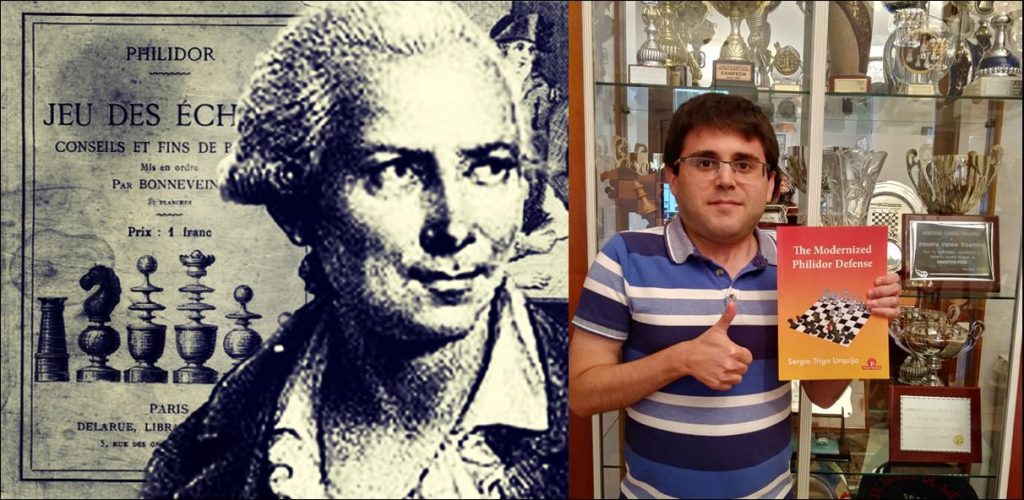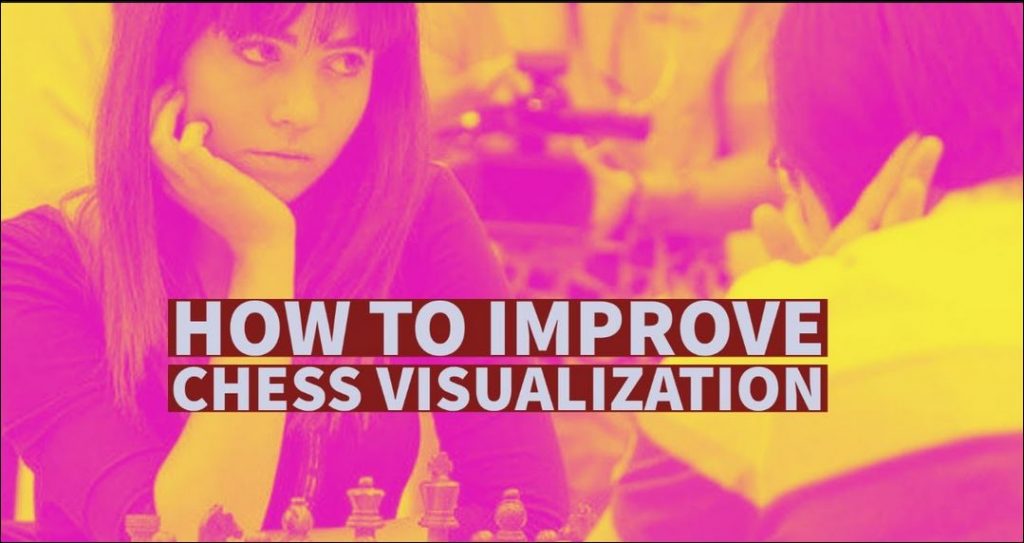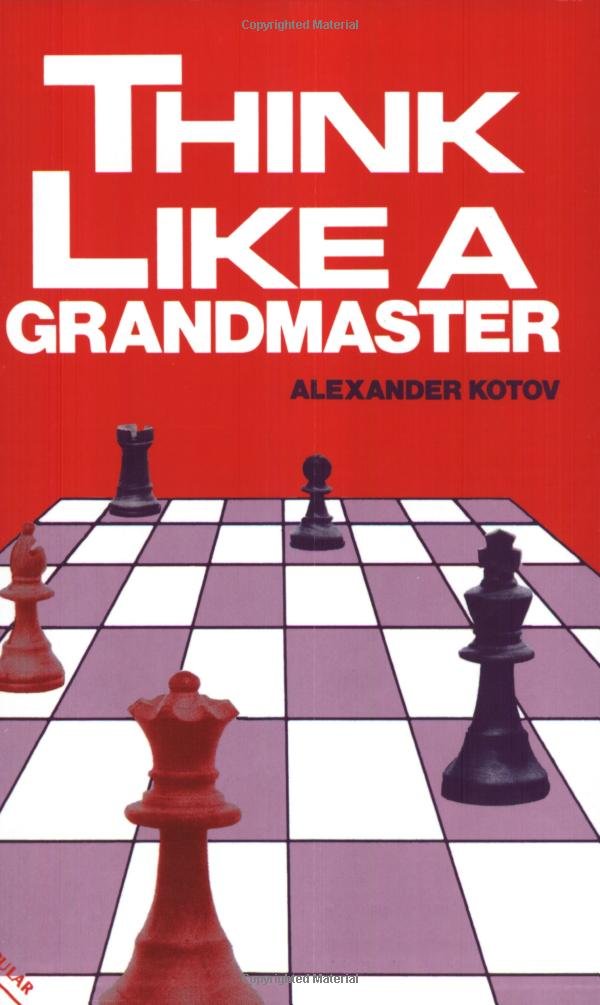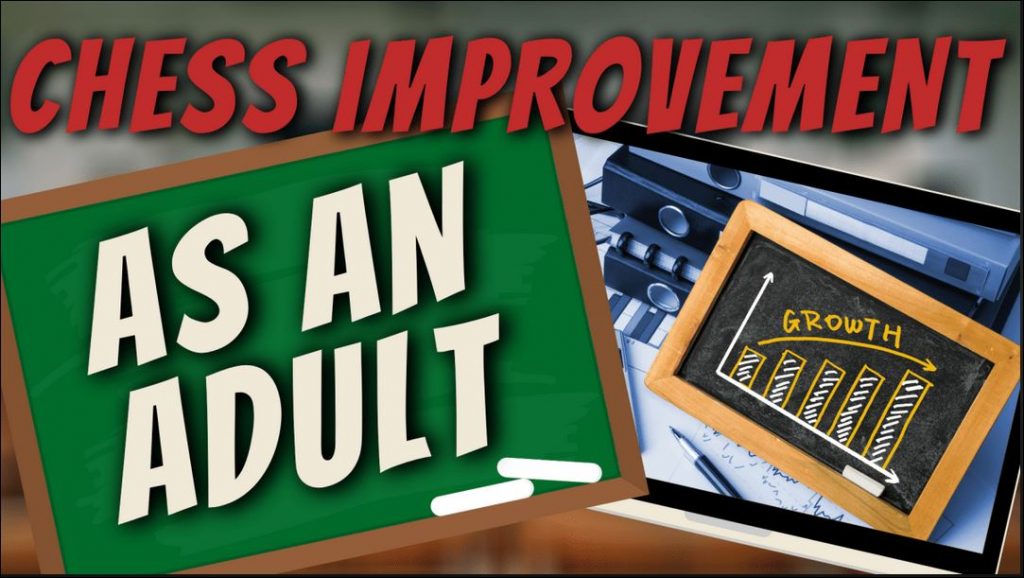
DN: Spider Man was bitten by a radioactive spider, Captain America was a secret army experiment in creating a super soldier, what is your super hero story which brought you to the chess world?
ST: A really interesting question! My story is a bit particular. When I was very young I suffered an infection that damaged my lungs and became a chronic disease. For this reason, I could not practice any sport that required physical effort and chess was a great escape route. So much so that I fell in love with chess and it was possibly one of the best things that happened to me in my childhood and in my life!

DN: Many would like to become titled players, but maybe they don’t understand the number of hours one needs studying chess and playing in tournaments weekly, do you have an estimate number?
ST: I don’t think there is a fixed number of hours. I think the main thing is to study following a study plan in an organized way in which I think that the solving puzzles part should have a very high number of hours. Obviously, the practice is very important, it is not worth studying a lot if you do not play afterwards. I mean playing slow games, not blitz or bullet games online, which has become very fashionable and I am not sure that it will help to improve.
DN: Tactics is mentioned as a weak point of the amateur or club player, yet the chess market is full of books about tactics, apps with thousand of tactical positions, and sites with tactical training. Maybe the real problem is the translation in the amateur brain between the 2D of the screen and the 3D of the chess board?
ST: I don’t think the problem is the dimension in which the problems are solved. It is clear that it is better to solve them on the board but doing problems in 2D has the advantage that you can do many in less time. In my opinion the problem for club or amateur players is that they do not pay enough attention to tactics books or applications. I think they are more obsessed with studying openings.
DN: Is it possible that visualization becomes worse with aging?
ST: I do not think that aging makes it less calculated or visualized. There are many cases of people who have maintained a high level at an advanced age. Possibly one of the most striking cases is Viktor “the terrible” Korchnoi. What I think is that with aging what is lost is energy and perhaps that leads to the fact that, at some moments, the quality is lower.

DN: What do you believe is the reason older players cannot keep up with younger players at GM level?
ST: Like I said before, I think it is a power problem. Young players have a lot of energy and that leads to them being more focused and having more stamina in games.

DN: Capablanca or Lasker were famous for answering the boring question: how many moves do you look ahead with an answer like: just one, the right one etc. Yet, watching many of Bronstein’s games it is possible to see he really calculated 4-5 moves ahead quite precisely, before launching an attack or approving a sacrifice, and that can be seen also by some time-stamps he wrote during the games. Do you think it’s normal in today’s chess world to calculate 4-5 moves ahead?
ST: Yes I am convinced that it is possible to see 4-5 movements or even more, depending on the type of position and the type of lines that you are being calculated, if they are very forced movements or not. Anyway, I think the most important thing is not to see many movements in a row but to be totally sure that the first moves are correct, having analyzed all the candidate moves. Not by seeing 7 movements in a row you will calculate better if in the second movement you have a better one. I think it is better to go slow and make sure in the first moves that you have all the candidate moves seen.

DN: Kasparov latest blitz tournament surprised everyone, because he had a 2300 performance. After the tournament he said that the evaluation of the openings he played, was totally changed by nowadays engines, compared to his former analysis and evaluations. It seems at professional level the real research is made by engines, not humans. What do you think about it?
ST: It is clear that today, the theory of openings and the way of investigating them has totally changed compared to 10 years ago. Now it is absolutely necessary to use engines. Even so, I think that the human being can still contribute a lot to the theory of openings, looking for ideas that perhaps are not the first option of the engine but that can annoy the opponent. The engine does not understand whether it hurts or not, but a human being does. I think the ideal way to prepare an opening line is to think about your own position yourself and once you have found an idea, check it with the engine. And if it is possible to play that position against someone else to see what the human answers are, so much better.

DN: Fischer was struggling in opening preparation for his 1992 return match against Spassky, once more it seems at professional level the opening phase is the most important part of the game, what do you think?
ST: The opening phase is the most important depending on the level of the players. Surely at the elite level, yes, I consider that those players have mastered the endings, tactics and others and where they can progress or surprise the most is in the opening field. For the other players, the opening is one more phase of the game but in the end everything is usually decided either in a tactical blow or in the difference of knowledge in the endings.
DN: Can you play Blindfold games, and what is your opinion of blindfold play?
ST: I am capable of playing blind games, although I recognize that if the game is very long I can have difficulties.
I think playing blind helps a lot in visualizing lines. Many times when I am playing on the board and I have to calculate, I try not to look at the board so as not to be distracted by the fixed image of the position and that helps me a lot.
DN: I listened to an interview with Anna Muzichuk, and she kept her preparation for the women’s world championship secret. Does it really mean she does something all other modern professional players and their coaches don’t do and don’t know?
ST: I believe that to some extent we all do that. When we prepare against a specific opponent we always try to surprise them in the opening and for this we try to hide our ideas. Nowadays it is very clear in online games where many players seek to play with an anonymous nickname or directly play with their name but opening lines that have little or nothing to do with their repertoire in slow games. The less information our rival has about us, better.
DN: Some titled players are paranoid about playing online because of cheating. What’s your take on it?
ST: It is the main reason why I do not play online tournaments. In the very few online tournaments I have played, I have been cheated and did not feel good at all, so I decided a long time ago not to play online tournaments. I only play single games to distract myself.
DN: Titled players before Chessbase all grew up reading books, some had even only 1-2 books (those from Soviet Union) who read over and over. Yet today thanks to Chessbase Megabase with over 8 million games, one can find everything with few clicks. Do you think books are still needed to learn chess?
ST: The world changes and technology helps us move forward. However, I believe that books are still necessary. A game in chessbase does not explain the movements to you or what the player who made them thought. In the books (if it is good) they explain the position to you, all the nuances and this is really necessary to progress in chess.
DN: Do you remember some of the chess books you read when you were young, which were quite important in your improvement as chess player?
ST: I am still young!! Jokes aside, there have been several books that I’ve been lucky enough to read that have helped me progress. For example, “My System” by Aaron Nimzowitsch, Garry Kasparov’s “My Great Predecessors” volumes , the three volumes of Alexander Kotov and a book that I especially liked “Learn from the Legends” by Mihail Marin.

DN: Reading some of Tal’s interview, he mentioned he would watch 70-80 games a day. Yet, when I try to watch some of Carlsen’s bullet games, I often lose myself in the analysis, or in asking myself why he didn’t play some other moves. Bottom line, when I watch 3-4 games a day, is a kind of record. Do you think is there a benefit in watching many games also if one doesn’t understand them?
ST: Watching a lot of games without understanding, I don’t think it helps at all. What’s more, it may even frustrate you. Also, bullet games I don’t think are the best to watch and learn. It is much better to take elite and classic games and watch a few each day but watch them slowly, calmly and trying to understand. And for this I think the best thing is to select a good book that will explain everything to you.

DN: Do you have any advice for senior players in the 2000 range who want to reach the master title (2200)?
ST: To improve and get to that level, I don’t think that improving openings can help as much as performing and improving visualization and tactic drills. If to that you add knowledge in the basic endings, you have all the perfect ingredients to improve and reach your goal.
DN: In the past century some top players said studying blitz games was stupid. Yet I’ve seen many of Carlsen’s bullet games on Lichess and he plays like an engine (at the moment his bullet rating is around 3150 like a weak stockfish), even some seemingly common moves he makes in the endgame have a plan behind it. The funny thing is: he using only 60 seconds for an entire game. What’s your opinion about it?
ST: Elite players are elite players for a reason and it is clear that, even in bullet games, they are extremely good and capable of making moves of deep understanding for other mortals. However, I still think that these games are not worth investigating if our intention is really to learn. Picking up a good book and studying a few games each day is much more worthwhile.
DN: would you tell us something about your book published with https://thinkerspublishing.com/?
ST: Writing the book is an idea that I was considering a few years ago and that, thanks to the pandemic (I had to have something good), I decided to do it. I want to thank Edouard Romain for the support he has given me throughout this time and for giving me the opportunity to relate and explain an opening line that has been really important for me in my chess life, since I have been playing it since I was a child. A way to remember my life through chess.
DN: This ends the interview, under here one can find the link to Thinkers Publishing The Modernized Philidor Defense. A big thank to Sergio for being patient with me, because I’m overloaded at work. And a big thank to Thinkers Publishing for helping with the interview. If any reader wants more questions answered, please contact me on my FB or Twitter.
